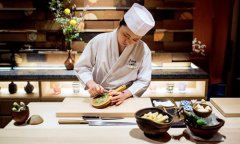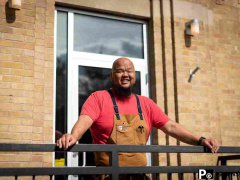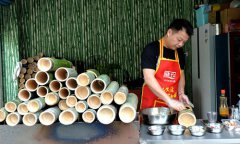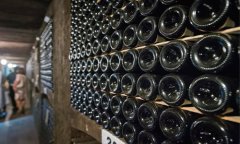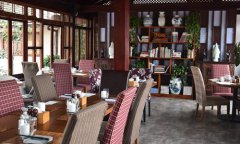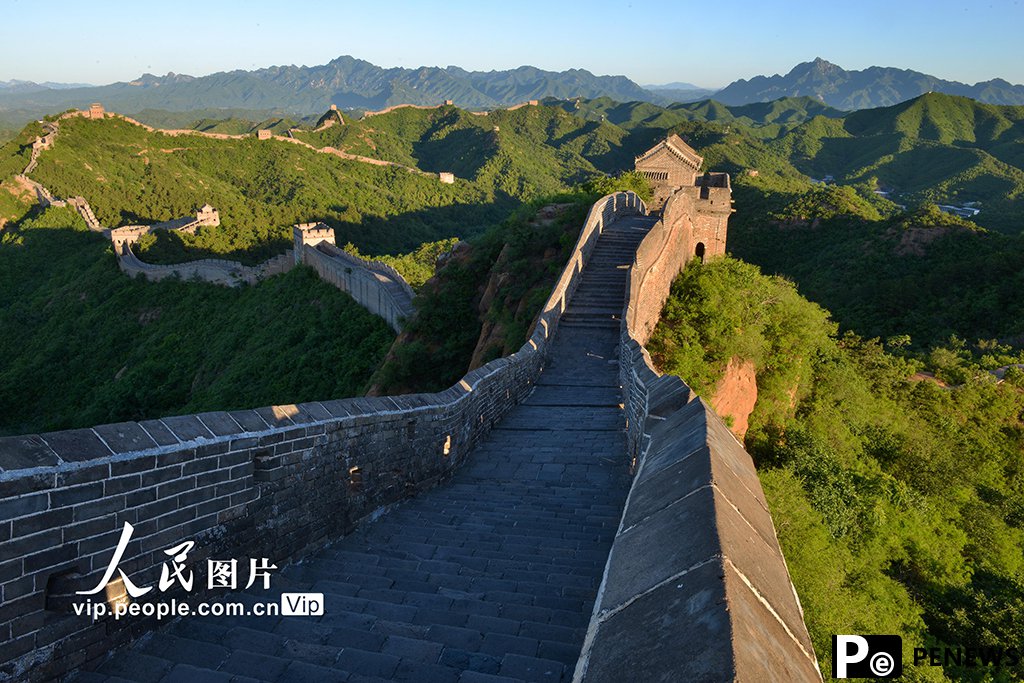
Different types of baklava are on display and being packaged at Gulluoglu, a shop in Gaziantep, Turkey. The city has many shops dedicated to the sweet pastry. Claire Harbage/NPR hide caption
toggle caption Claire Harbage/NPRGAZIANTEP, Turkey — When visiting this historical southern Turkish city, it doesn't take long to discover its true passion: baklava.
So much so that Gaziantep has become synonymous with the sweet pastry, made of several layers of phyllo dough, filled with nuts and soaked in syrup or honey.
Shops across the city are adorned in green and gold — green for pistachios, gold for the dessert's flakey crust. Acres and acres of pistachio groves surround the city. Even at the airport, sculptures of the beloved seeds line the curbs outside the terminals.
Baklava is not unique to Gaziantep, and the city doesn't claim its origins. The pastry is feted in local cuisines of many countries, from Iran to Greece to Algeria. But no city has made baklava into a tourist attraction, a vast industry and a public obsession quite like Turkey's Gaziantep.
Sponsor Message
NPR recently toured the city — along with Mustafa Bayram, a professor of food engineering at Gaziantep University — to find out: What is it that has this place so entranced by this sticky delight?
The OG: Gulluoglu

Mustafa Bayram (center), a professor of food engineering at Gaziantep University, walks through the Elmaci bazaar in Gaziantep, looking at and talking about the different foods and ingredients for sale. Claire Harbage/NPR hide caption
toggle caption Claire Harbage/NPRThe first stop was a store in Elmaci bazaar, tucked between a 14th century mosque and shops selling dried peppers, eggplants and colorful spices. Gulluoglu is a quaint, narrow shop run by two brothers, 43-year-old Cevdet and 37-year-old Murat Gullu. They say they're the sixth generation of a baklava-making family, and boast that theirs is the oldest baklava shop in Turkey, opened in 1871.
"Our customers come here with their grandkids and tell us that their grandfathers had brought them here to this shop to eat baklava when they were young," says Cevdet Gullu.
The way they tell it, in the mid-1800s, their great-great-great grandfather Gullu Celebi set out for the Muslim pilgrimage to Mecca. On his way, he traveled in a caravan passing the cities Aleppo and Damascus in Syria, where he noticed shops selling a walnut-filled version of the pastry.

Fresh baklava sits on a windowsill at Gulluoglu. Claire Harbage/NPR hide caption
toggle caption Claire Harbage/NPRBack in his hometown, then known as Antep, baklava had been mainly made at home. But seeing those Syrian stores led Gullu Celebi to cook up a business plan.
Sponsor Message

